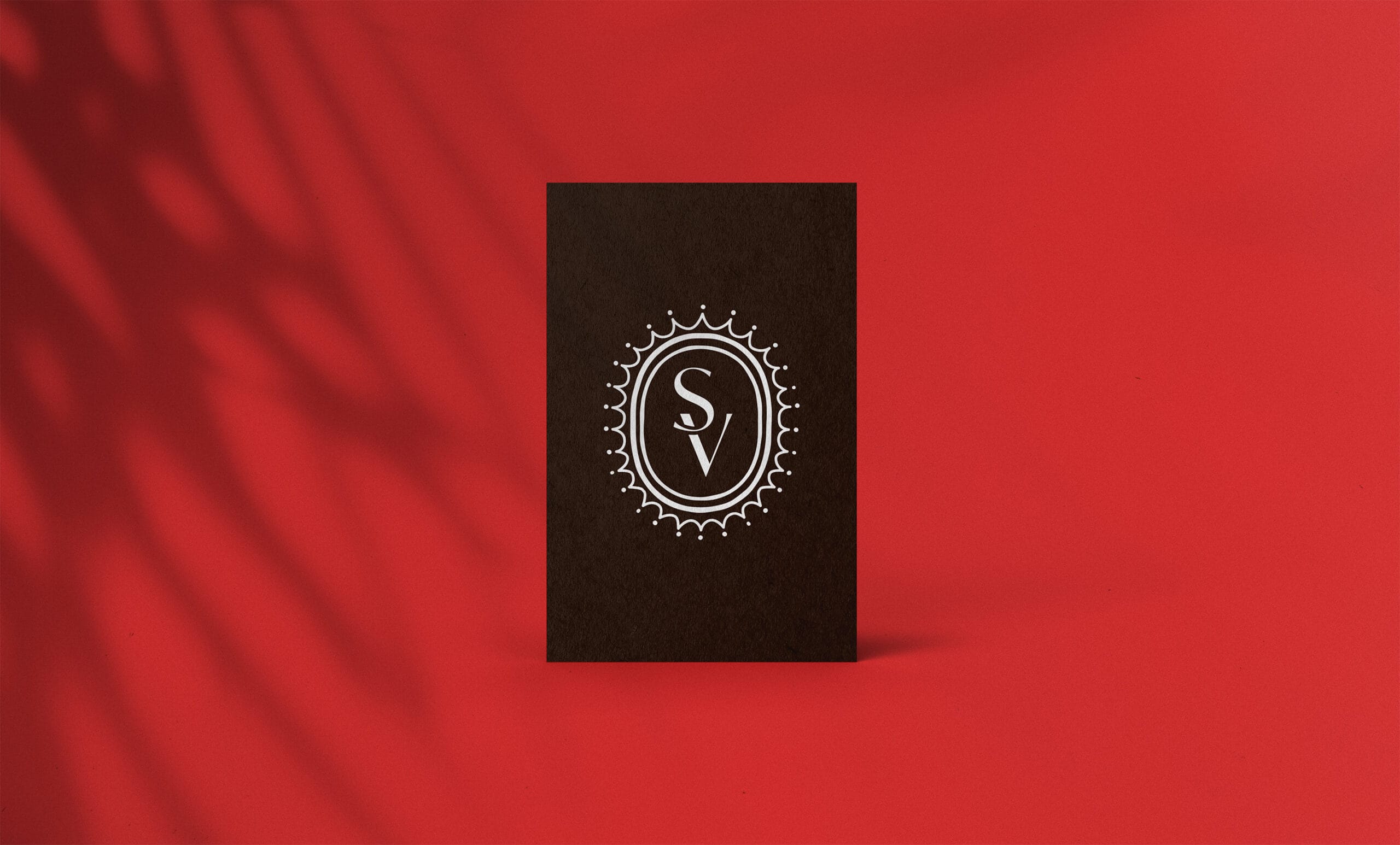Branding and visual identity are also key to communicating a company’s luxury credentials by conveying an approach that’s intelligent and visually appealing.
Working with prestigious organisations in the design and build space such as Beata Heuman, Studio Hollond and Sarah Vanrenen, March develops brands that speak of aspiration, quality and skill. Here are our five tips for creating a luxury brand:
1. Dare to be different
Establishing a clear point of difference makes a luxury brand instantly recognisable and conveys its standing and authority. A brand might be associated with a particular colour like Hermés orange or Louboutin red, a unique pattern like the Burberry check, or a symbol like the Mulberry tree.

At March, we specialise in distinctive branding that attracts and engages a relevant audience, rejecting the increasingly widespread trend towards predictable and uninspiring blanding. Our expertise in Elementor, a sophisticated web design tool, also allows us to incorporate particular elements of a brand into the user experience, like the hand-drawn flourishes on our website for Sarah Vanrenen.
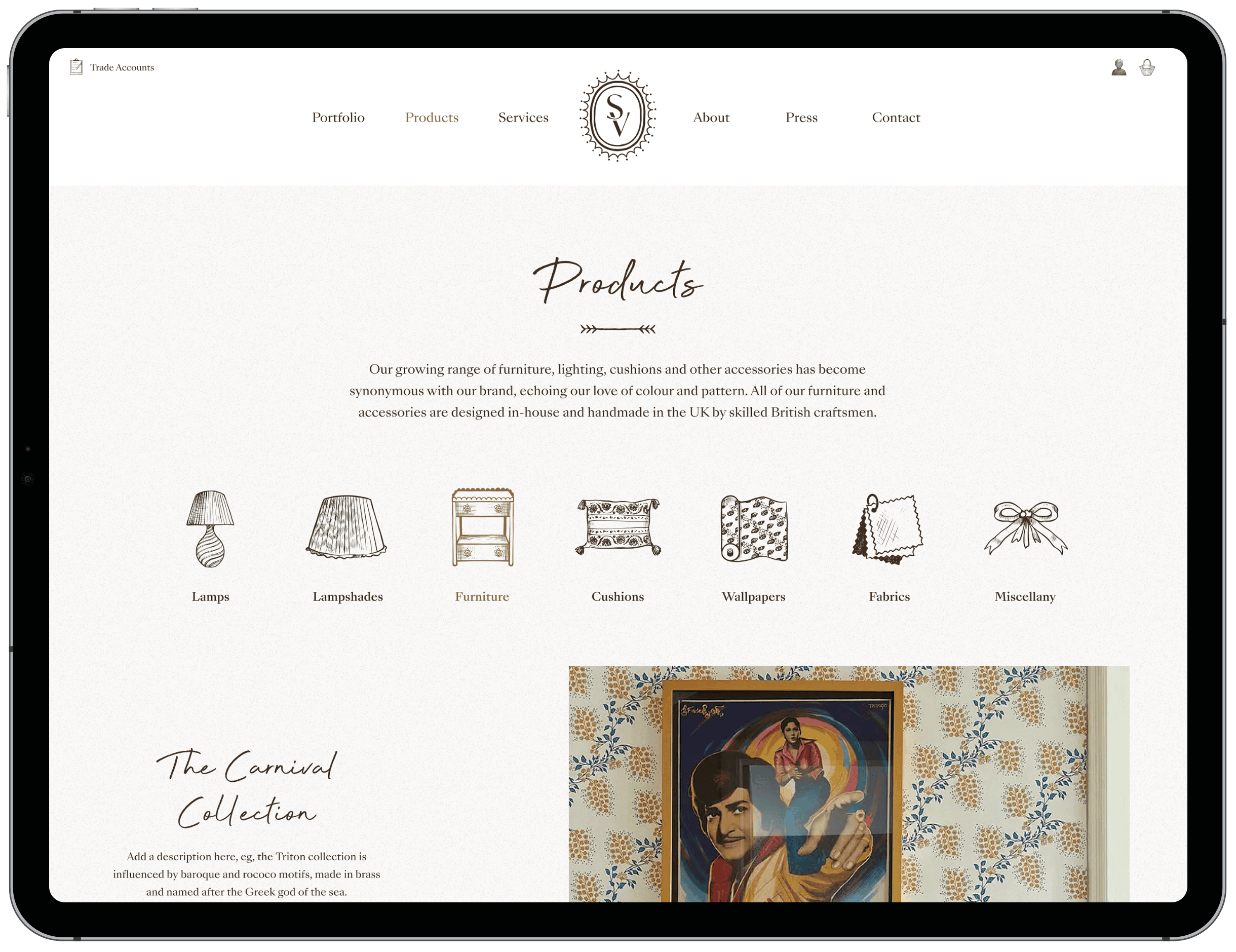
2. Show, don't tell
A luxury brand or business shouldn’t have to declare itself luxurious to be perceived as such. Restraint and discretion give a more effective impression of luxury than a website crammed with visuals, calls to action and sales copy.
In our work with luxury brands like Bernard London and Bloomsbury Construction Group, we prioritise negative space and a smooth user journey to provide an experience that feels effortless and intuitive, reflecting the standard of service these brands offer to their clients.
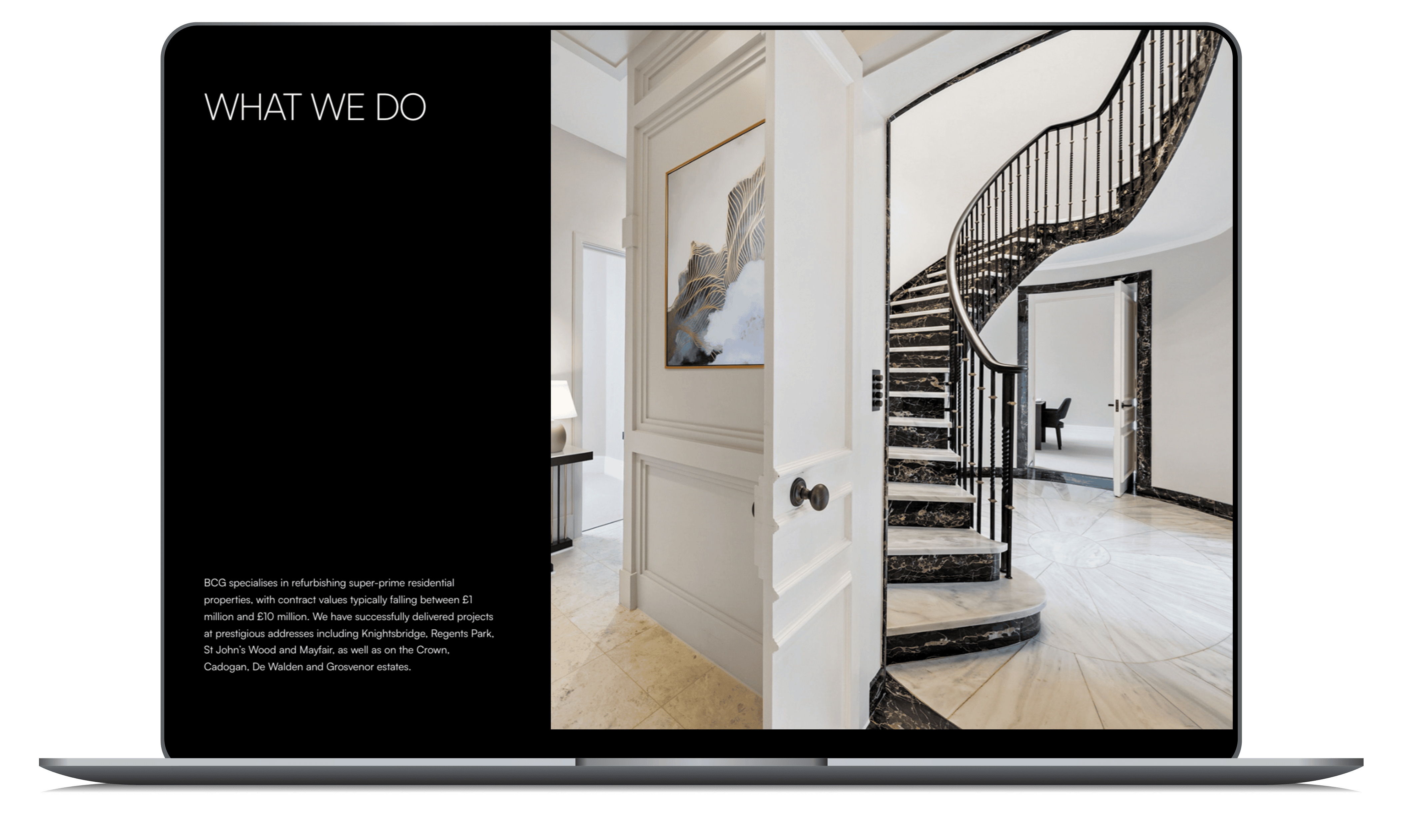
3. Be consistent
Consistency is key to maintaining a luxury brand, demonstrating your attention to detail and conveying the fact that your products or services are delivered with a concern for quality and endurance.
Cropping or altering logos or deviating from brand fonts represent lapses in consistency and can come across as slapdash.
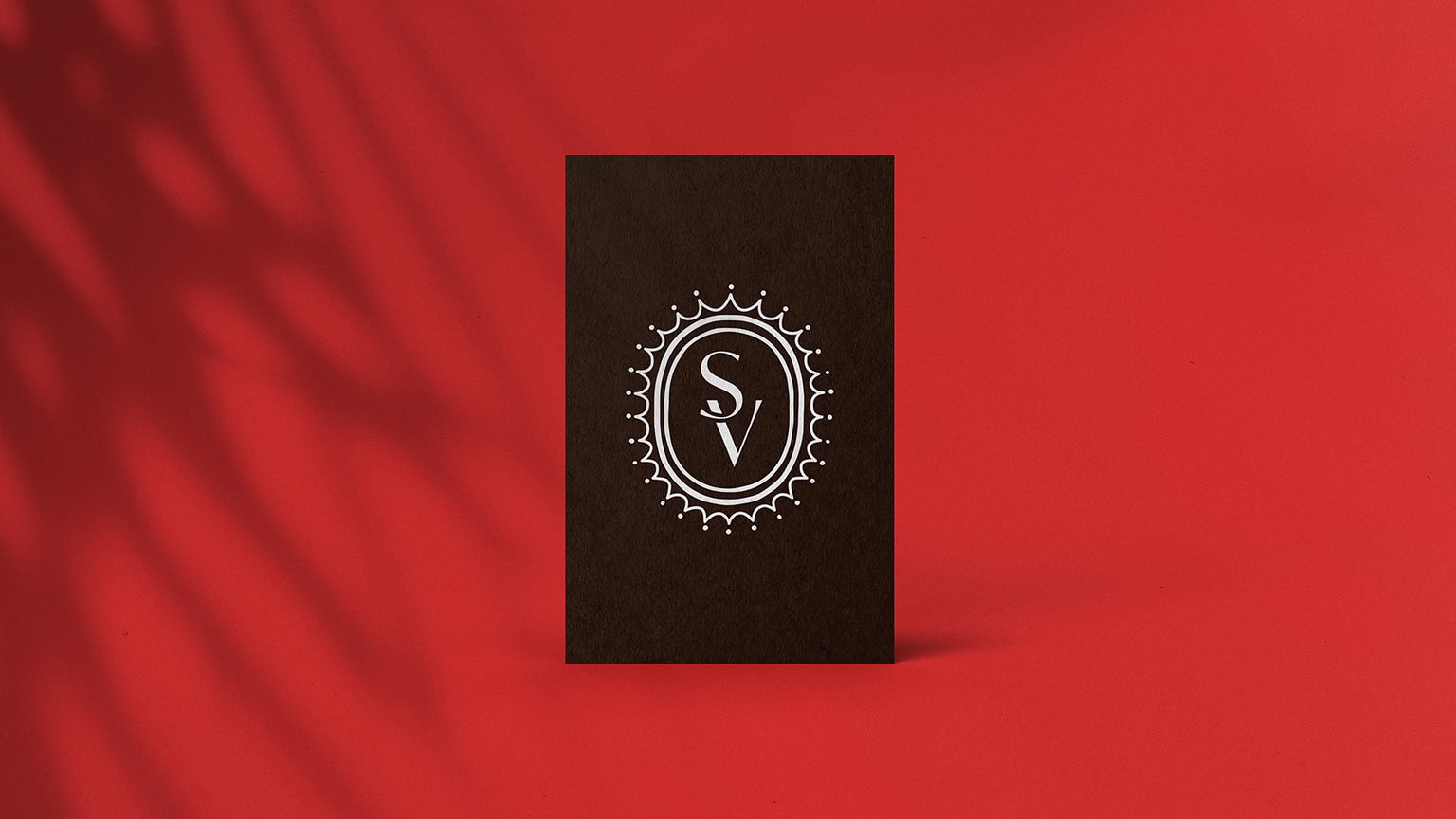
Detailed brand guidelines, such as the ones we provide to our clients, are a useful tool for ensuring assets and visuals are used in a consistent manner. A tone of voice document or house style guide can be another way to make sure you are communicating with your clients in a way that best represents your brand.
4. Share your story
Heritage often contributes to a sense of luxury, but your company doesn’t have to have centuries of history behind it for you to craft a compelling brand story. The motivation for establishing your business, challenges you’ve overcome, key partnerships you’ve formed, or any ethical, environmental or philanthropic causes you’re passionate about are all fundamental to developing your brand story.

There are a number of subtle and effective ways to incorporate your story into your branding, whether through logomarks, icons, or a custom font. For our project with Tasha Freeman, a professional ceramicist as well as an interior designer, we used the signature she applies to all her ceramics to create a unique logomark.
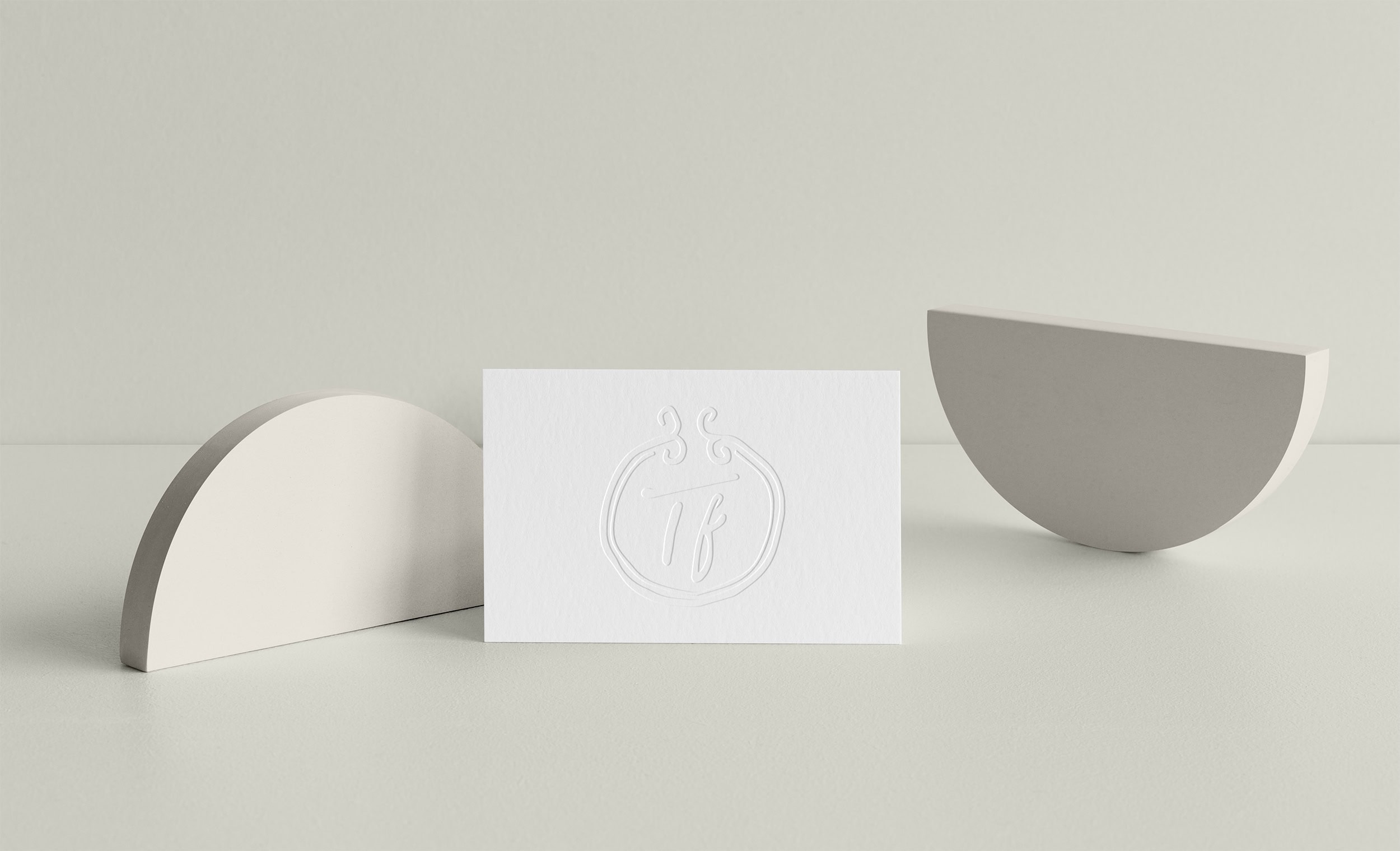
5. …but don’t fake it
A luxury brand is, above all, authentic, which is why a counterfeit designer handbag has a much lower value than the original.
Your authenticity lies in your individual sense of style, your voice, and your values. It’s important, therefore, that a rebrand or brand launch fully represents you.
Before embarking on a project with a new client we undertake a discovery process, using interviews and questionnaires to establish the values and vision of the leadership team and other stakeholders, as well as key challenges and goals. In this way we uncover the essence of the brand and the people behind it to craft an authentic, engaging – and yes, luxurious – new website and visual identity.
Looking to launch or revitalise a luxury brand?
March has helped launch and scale luxury brands worldwide. To find out more about how we can help, get in touch.
